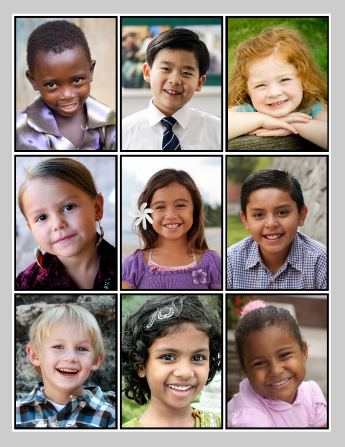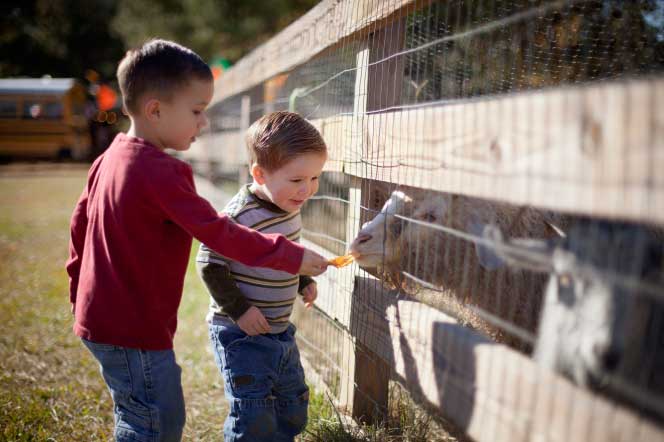
3 Tips to Transcend Loneliness
I couldn’t stop giggling. It was the new Primary counselor’s first time to experience Nursery’s singing time. She shrieked with laughter watching the children’s exaggerated smiley and frowny faces during “Smiles.”
“If you chance to meet a frown, do not let it stay. Quickly turn it upside down and smile that frown away.
No one likes a frowning face. Change it for a smile. Make the world a better place by smiling all the while.”
We all laugh when we sing that song together. I wish everyone could see the children’s frowning faces turned into smiles. It does make my world a better place.

But what if simply smiling doesn’t make you feel happy inside? What if you actually feel quite sad and lonely?
Maybe you’re surrounded by people laughing, talking, and belonging. Maybe you’re all alone in a crowd of people. Maybe you’d just like to talk to another adult once in awhile.
Maybe you just can’t think of anything to smile about.
The Age of Loneliness

Some people blame advancing technologies on increasing loneliness.
Is there a link between technology and loneliness?
George Monbiot contends that there is and that this Age of Loneliness is Killing Us. The same technical advancements making the world a smaller place also enable an isolated loneliness.
Several folks weighed in with their opinions on social media.
Charles observed the lack of public interaction.
“Go someplace where waiting is required, Jiffy-Lube, the DMV [Department of Motor Vehicles], etc. People are either staring at their phones or they have their ear buds plugged in. No one makes eye contact anymore. No one ‘chats’.
Technology in these public places allows us to exist on our own private island. Love technology, but it gives us the opportunity to avoid the awkward small talk and simple human interaction that used to happen every day.”
Sarah mused that
“because of our technology, we are more connected to people than ever, but I think we feel more misunderstood, taken advantage of, etc., because we have lost the values that tied us to the people around us. When we don’t have that shared foundation of values we feel alone.”
Susan also sees a paradox in the technological ability to connect to others.
“Technology makes us think we are connecting to all of these people we could never connect with before, but the personal one on one relationships are a lot more rare and therefore the true value of human interactions is lost.
The chance to see someone’s face and share a hug, or just his or her very presence, is lost.
Do we hang out? Of course, but the propensity to be on our devices also divides and diminishes our heart to heart experiences.
We find ourselves a society of much more isolated, private people, afraid to let someone see the imperfections in our home environments. We feel shunned for our ideals, unless minority centered, and quite censored in our opinions and thoughts, unless of the popular variety. We have become a society of pleasers, afraid to stand up for good old fashioned values.
So we encompass ourselves about with a Web of solitude and instant gratification and wonder why we feel so alone.”
Terrie appreciates the advancements of the modern age!
“Now, for me, the modern world is actually helpful. I was never a people person and am too oddball and too shy to easily find friends, so growing up, I preferred books. As a child, it’s hard to find friends if you’re reading Nancy Drew when they are preschoolers and reading Shakespeare the summer they discover Nancy Drew.
However, thanks to the Internet, it’s easier to find all the other unusual people, even though they seldom live near me, and it’s easier for me to chat by writing than it is by talking, so I have more friends as an adult than I ever did before the Internet. I can’t knock on their door, but I also have full control over my social life–if I am not up to real people, I can just stay away from the computer.”
Don, distinguishing between loneliness and being alone, remarked,
“This is not, and should not, be the age of loneliness. At 75 years old now, I have been alone for a long time and I am the antithesis of lonely! I thrive on the people around me who teach me things, who hug me and who still nurture me at this age.
Alone is not loneliness. Being alone gives you the freedom to do what you want when you want, to think what you want to think and share when you want to.
In fact sometimes I think that I am being selfish by being alone, but lonely I am not!”
We live in an age of a pronounced lack of social interaction, but we can use technology responsibly to boost our social inclusion. Yet many people are dealing with loneliness and wonder how to overcome loneliness.
How do you cope when you feel isolated and down?

I’ve approached overcoming loneliness a couple of different ways.
The “wallowing in loneliness” and “wondering how to deal with feelings of loneliness” ways didn’t offer me long-term satisfaction.
The “self-searching introspection then doing something about it” way brought immediate positive results. Maybe that’s why faith is an action verb. The very act of doing moves us to a different state of mind.
Here are 3 things you can do, if you’re fed up with loneliness and feel it’s time to transcend it.
1 – Become the Friend you Want to Have

It is fun to have a friend who will play with you.
It is fun to have a friend who can stay with you.
It is fun to make a friend for your whole life through.
But to have a friend, you must be a friend, too.
If you want to play a game, you should play it fair.
If you have a piece of cake, you must learn to share.
Then if you should need a friend, you would have one there.
If you want a friend, you must show that you care.
“Friends are Fun” Primary Children’s Songbook
Relatively simple changes can make a difference and get us out of the lonely zone.
I never knew walking a dog could be so socially engaging before my husband and I got our English bulldog. We’re frequently stopped by people who want to meet our dog. Going for a leisurely, uninterrupted, introspective walk with him is impossible.
Initially unaccustomed to this, I felt weird and didn’t know what to say for the few awkward moments people blasted into my space. Eventually, my fear and shyness dissipated as I enjoyed the human interaction and actually felt a part of the greater collective community. Now, I’m much more comfortable and prepared to stop momentarily and chat with a stranger.
My personality is generally content with brief, “non-committal” contact with others. But, what about that innate need to be really known and understood?
Elder Richard G. Scott experienced great loneliness in his youth and later realized he could have changed his experience and overcome loneliness.
“The social and sport activities [of my youth] left me feeling alone and unwanted. It was not until a lot later in life that I realized it was largely my fault.
“I have since learned that one cannot demand love and respect or require that the bonds of friendship and appreciation be extended as an unearned right.
These blessings must be earned. They come from personal merit. Sincere concern for others, selfless service, and worthy example qualify one for such respect.
All my rationalization that others had formed select groups and knowingly ruled out my participation was largely a figment of my imagination. Had I practiced correct principles, I need not have felt alone.”
Being willing to try new things and increase social interaction leads to meeting like-minded people. Improving our character and people skills helps us become more likeable, too. I’ve joined social media groups that expand my interests and circle of friends–sometimes I participate and sometimes I don’t, but I have the option.
I walk weekly with a new friend I met at church. I say hello to people I pass at church. It’s amazing how effective saying hello to people is.
2 – Forget Yourself and Go to Work

As a discouraged missionary dealing with loneliness, Gordon B. Hinckley wrote a frustrated letter to his father. His father’s reply came:
“Dear Gordon, I have your recent letter. I have only one suggestion: forget yourself and go to work.”
His father’s words changed Elder Hinckley’s perspective. He promised the Lord he would do all he could to forget himself and work in the Lord’s service.
Later, as president of The Church of Jesus Christ of Latter-day Saints, he offered this advice to the lonely
“I believe that for most of us the best medicine for loneliness is work, service in behalf of others.
I do not minimize your problems, but I do not hesitate to say that there are many others whose problems are more serious than are yours. Reach out to serve them, to help them, to encourage them.”
President Ezra Taft Benson similarly suggested turning outwards to lift others as advise on how to overcome being lonely.
“Reach out to others. Rather than turning inward, forget self and really serve others in your Church callings, in personal deeds of compassionate service, in unknown, unheralded personal acts of kindness.
“If you really want to receive joy and happiness, then serve others with all your heart. Lift their burden, and your own burden will be lighter. Truly in the words of Jesus of Nazareth: ‘He that findeth his life shall lose it: and he that loseth his life for my sake, shall find it’ (Matthew 10:39).
Following the advice of these two prophets, even when I really didn’t “feel like it,” produced positive results during times of loneliness.
I’ve moved a lot in my life and often feel like the new kid on the block. After a particularly difficult life experience, my husband and I faced another move. I felt very lonely.
The general secret to my easy integration into new wards had always been through visiting teaching. Visiting teaching gave me a few “instant friends”—or at least people I could say hi to on Sunday who would recognize me back.
This ward was no exception. By ministering to sweet sisters in a variety of circumstances, I could see the hand of God in their lives and subsequently in my life. Their faith strengthened mine. I found a sense of purpose and belonging that I would not have found without visiting teaching.
3 – Compassionate Introspection

Keeping a journal enables us to express ourselves in a safe place—fears, concerns, happiness, miracles—which puts our trials in perspective.
President Spencer W. Kimball often counselled Latter-day Saints to keep a journal. He said, “Every person should keep a journal and every person can keep a journal.”
Some of the deepest feelings of loneliness and isolation come when we feel alienated from God.
President Henry B. Eyring suggested that each day we stop, reflect, and record in our journals how we’ve seen the hand of God in our lives. He promised that as we write those experiences, “we come to see the hand of God more clearly, so clearly that in time we not only remember Him, but we come to love Him and, through the power of the Atonement, become more like Him.”
As you record your stories, you may find relationships you can strengthen. Is there someone you can reach out to in renewed friendship? Should you apologize to an estranged friend? Unloading thoughts in a journal helps to let them go and see your life with fresh eyes.
Another opportunity for compassionate introspection is during the Sacrament.
Sister Cheryl Esplin described how meaningfully experiencing the sacrament heals, renews, and refreshes our souls.
“The sacrament gives us an opportunity for introspection and an opportunity to turn our heart and will to God. Obedience to the commandments brings the power of the gospel into our lives and greater peace and spirituality.
As a priesthood holder extends his arm to offer us the sacred emblems, it is as if the Savior Himself were extending His arm of mercy, inviting each one of us to partake of the precious gifts of love made available through His atoning sacrifice—gifts of repentance, forgiveness, comfort, and hope.”
Elder Melvin J. Ballard testified of the soul healing effects of the sacrament:
“I am a witness that there is a spirit attending the administration of the sacrament that warms the soul from head to foot; you feel the wounds of the spirit being healed, and the load is lifted. Comfort and happiness come to the soul that is worthy and truly desirous of partaking of this spiritual food” (“The Sacramental Covenant,” Improvement Era, Oct. 1919, 1027).
The Savior’s Atonement heals the effects of loneliness!
Through truly participating in the sacrament, we are healed, sanctified, and our relationship with God the Father and our Savior Jesus Christ are manifestly strengthened.
“I will go before your face. I will be on your right hand and on your left, and my Spirit shall be in your hearts, and mine angels round about you, to bear you up” (Doctrine and Covenants 84:88).

The Savior invites ALL to come, participate, know and be known.
His Gospel net catches all sorts of fish. Some of the fish are visibly similar, some are distinctly unique. But all the fish eventually learn they have the most important things in common: they are “are children of the most high” (Psalms 82:6); they are “no more strangers and foreigners, but fellowcitizens with the saints, and of the household of God” (Ephesians 2:19); and they “love [their] neighbors as [themselves]” (James 2:8). Each of these truths brings comfort, hope, and camaraderie.
As I’ve tried to become the friend I want to have, forgotten myself and gone to work, and introspectively sought understanding, I’ve moved from feeling isolated to embraced.
I believe that through the Atonement’s power, I need never feel crushing loneliness again. I believe in Jesus Christ’s promise, said myriads of ways, that He will be our friend and come to us.
“Behold, I stand at the door, and knock: if any man hear my voice, and open the door, I will come in to him, and will sup with him, and he with me” (Revelation 3:20).










